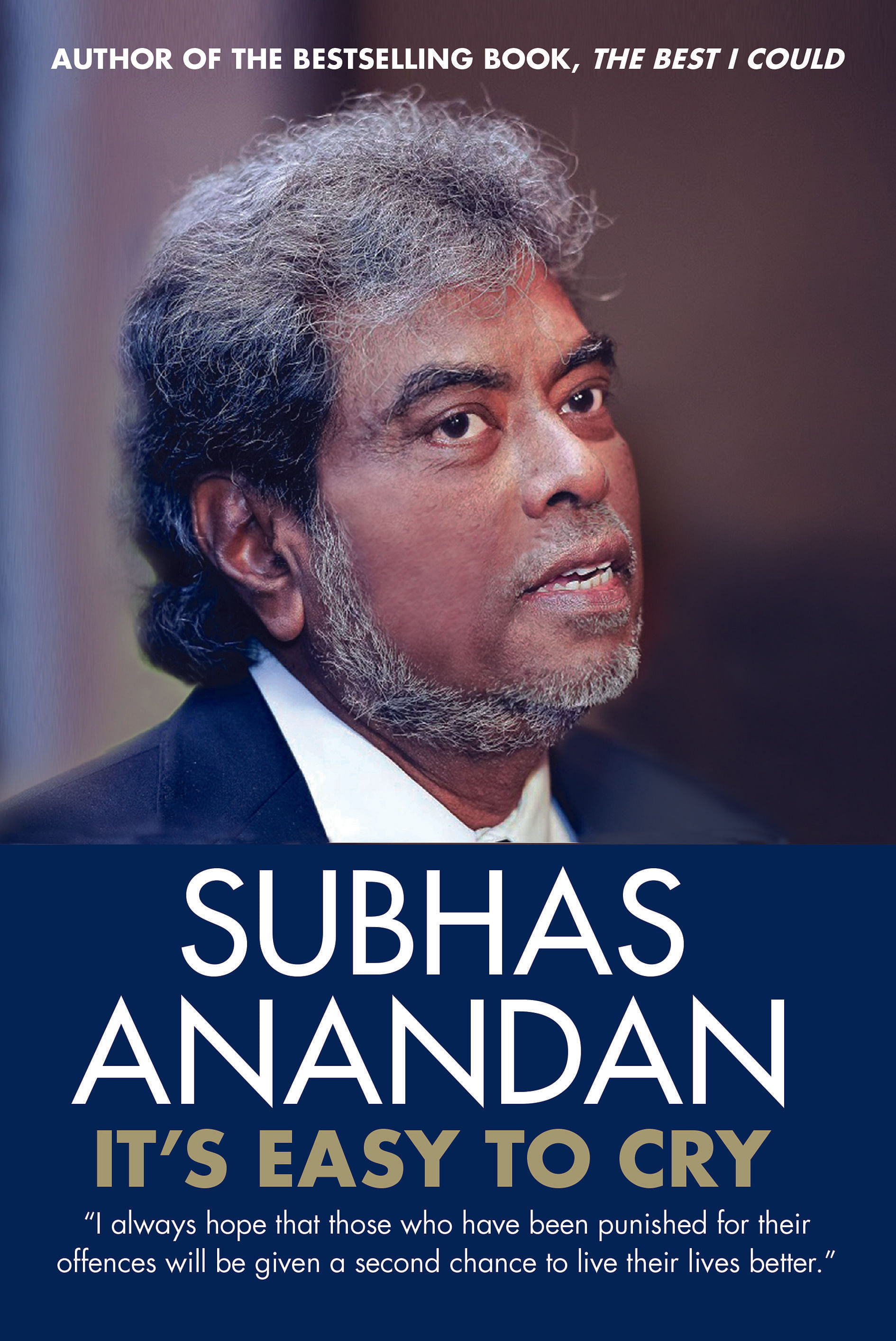Humanity brought to the fore in Subhas Anandan's new book
Late criminal lawyer wrote It's Easy To Cry while he was undergoing dialysis treatment
Sign up now: Get ST's newsletters delivered to your inbox
Subhas Anandan would spend three days a week hooked up to a dialysis machine before his death in January but used the time to dictate chapters for his second book.
His first, The Best I Could, was released in 2009 and went on to be reprinted seven times. The follow-up, It's Easy To Cry, is due to hit bookstores next month.
Regarded by many as Singapore's greatest criminal lawyer, he died of heart failure in January, aged 67.
He had spent the preceding year undergoing kidney treatment with each session lasting four hours.
It altered his lifestyle "significantly" and spurred him to start dictating his thoughts for his second book while undergoing treatment, which he described in a new 2015 edition of his first book as "not as easy as I thought".
" You are with other patients, and nurses are walking up and down...," he wrote. "Suddenly you realise you are totally dependent on the dialysis machine for life."

The late Subhas Anandan's second book will hit bookstores next month.
PHOTO: COURTESY OF MARSHALL CAVENDISH
It's Easy To Cry is about cases he handled which brought "humanity and emotions to the forefront".
One high-profile case featured is the story of Wu Yun Yun - the China-born wife of Singapore opposition politician Tan Lead Shake.
Wu, then 27, was jailed in 2009 for killing her 33-year-old brother-in-law Tan Lead Sane and the attempted manslaughter of his wife, Madam Huang Mei Zhe. They were stabbed while sleeping at the Tan family's Paya Lebar house in 2008.
In a chapter titled Slipper Man's China Bride, Mr Subhas wrote of his experience defending Wu. He explained how she was driven to attack the couple after being treated unfairly in the family home.
In 2001, Wu came to Singapore reluctantly at the age of 19 to marry Lead Shake - an arrangement made on the strength of a dowry collected by her parents from his father.
But she had to live in an extended household which included her husband's parents, an unmarried older brother-in-law, Lead Sane and his China-born wife.
Mr Subhas explained how Lead Sane and Huang had a closer relationship than Wu and Lead Shake, and were closer to her mother-in-law, Madam Ng Bee Hion, who treated Huang more favourably.
This made Wu resent Huang and Madam Ng. But there was also an absence of understanding from her own family in China which triggered a depression in her.
"She felt mentally alone in both homes," wrote Subhas. "This case brings out how human beings can react when they feel that they are unfairly treated. Jealousy can lead to violence."
He took up her defence and mitigation in the High Court where she was jailed for 16 years instead of receiving life imprisonment, which the prosecution had sought.
"People wonder why I took up this case. Like with all my cases, I believe that Wu should be given the best defence. The fact that she was poor or that she's from China did not in any way affect my conviction to help.
"I felt especially for her family, who were desperate to seek assistance. It made me feel even more for Wu's family and the consequences that drove her to this state."
Mr Subhas said that writing the book while on dialysis was part of the "silver lining" that he gleaned from those depressing days.
"My illness made me a more realistic person, one who realises that in the past, I got all my priorities wrong," he added. "It was my career first, my career second and my career third. I didn't make time for (my wife, son and others)."


